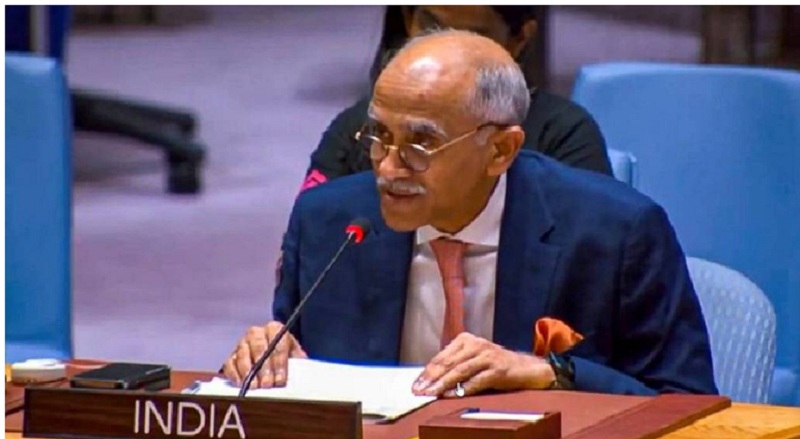India delivered a strong response to Pakistan at the United Nations, blaming it for violating the spirit of the Indus Waters Treaty (IWT) by launching wars and conducting thousands of terror attacks over the decades.
Addressing a UN Security Council Arria Formula meeting on water protection during armed conflict on Friday, India’s Permanent Representative to U.N. Ambassador Parvathaneni Harish dismissed what he called Pakistan’s ”disinformation” on the 1960 treaty.
Harish highlighted four aspects to expose the “disinformation” by Pakistan, which spoke about India’s decision to suspend the Indus Waters Treaty.
“More than 20,000 Indian lives have been lost due to cross-border terrorism in the last four decades,” Harish mentioned, highlighting the recent Pahalgam terror attack in which 26 civilians were killed.
He reminded Pakistan of its continued aggression against India. He pointed out that despite entering into the IWT in good faith 65 years ago, “Pakistan has repeatedly violated its spirit by inflicting three wars and sponsoring decades of terrorism”.
The Indian envoy underlined that in the last four decades, more than 20,000 Indian lives have been lost in terror attacks, the most recent of which was the dastardly targeted terror attack on tourists in Pahalgam.
Even as India has shown extraordinary patience and magnanimity throughout this period, Harish said, Pakistan’s “state-sponsored cross-border terrorism in India seeks to hold hostage the lives of civilians, religious harmony and economic prosperity.”
He stated that terror attacks like the strike on the Tulbul Navigation Project display Pakistan-linked militancy strikes water-related infrastructure.
He highlighted that Pakistan uses civilian platforms to cover its terrorist activities.
Ambassador Harish further stated that India had formally requested updates to the treaty in view of current needs, including climate pressures, clean energy demands, and dam safety. Yet Pakistan has blocked all such proposals, even while allowing attacks like the one on the Tulbul Navigation Project in 2012.
ALSO READ: Indus Water Treaty: The lawfare of India’s position
Tension continues to be high following India’s precision attack under Operation Sindoor, and although military hostilities have ceased, the diplomatic disagreement continues.















